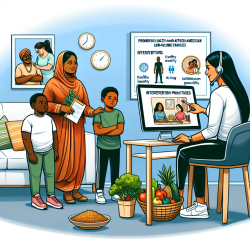The quest for universal health coverage is a global challenge that requires innovative solutions and a deep understanding of the underlying factors affecting health insurance ownership. A recent study titled "Determinants of health insurance ownership in Jordan: a cross-sectional study of population and family health survey 2017–2018" provides valuable insights into the factors influencing health insurance coverage in Jordan. This blog aims to help practitioners improve their skills by implementing the outcomes of this research or encouraging them to conduct further research.
The Study at a Glance
The study conducted a comprehensive analysis of the determinants of health insurance ownership in Jordan using data from the Jordan Population and Family Health Survey (2017-2018). The research revealed that 73.13% of the population had health insurance, with significant variations across different sociodemographic groups. Factors such as marital status, socioeconomic status, education, internet access, and geographical location were identified as key predictors of health insurance ownership.
Key Findings and Implications for Practitioners
The study highlights several critical areas where practitioners can focus their efforts to promote equitable access to healthcare:
- Sociodemographic Disparities: The research identified significant disparities in health insurance ownership based on marital status, education level, and wealth. Practitioners should be aware of these disparities and work towards minimizing them by advocating for policies that address these inequities.
- Geographical Differences: Urban populations were found to have higher odds of health insurance ownership compared to rural populations. Practitioners can play a crucial role in bridging this gap by supporting initiatives that improve healthcare access in rural areas.
- The Role of Technology: Access to mobile phones and the internet was positively associated with health insurance ownership. Practitioners should leverage technology to facilitate access to healthcare services and promote digital literacy among underserved populations.
Encouraging Further Research
The findings from this study underscore the need for further research to explore the complex interplay between socioeconomic factors and health insurance ownership. Practitioners are encouraged to delve deeper into these issues by conducting localized studies that consider additional variables such as cultural influences and policy impacts.
TinyEYE's Role in Enhancing Healthcare Access
TinyEYE is committed to providing innovative online therapy services that can help bridge the gap in healthcare access. By offering remote therapy options, we aim to reach underserved populations who may face barriers to accessing traditional healthcare services. Our platform empowers practitioners to deliver high-quality care regardless of geographical constraints.
Conclusion
The quest for universal health coverage is an ongoing journey that requires concerted efforts from practitioners, policymakers, and communities alike. By understanding the determinants of health insurance ownership in Jordan, practitioners can take proactive steps towards promoting equitable access to healthcare services. We encourage you to explore the original research paper for a deeper understanding of these issues.










